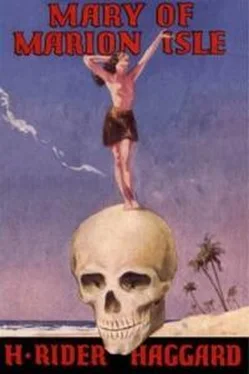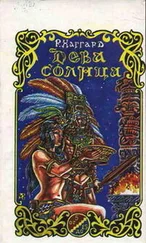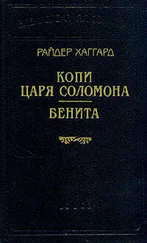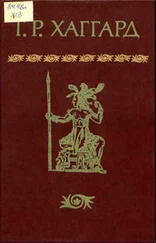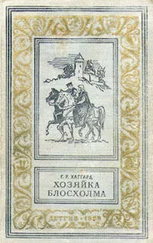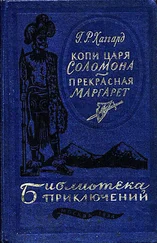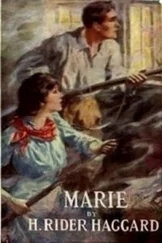Thus did Mary try to make herself attractive by such means as lay to her hand, with a success that would have startled her had she known all the truth. Lastly, that she might learn the effect, she took to examining her reflection after the fashion of Narcissus, in a certain still and limpid pool of water which served her as a looking–glass, for twice Andrew came on her thus engaged.
The inner meaning of these developments was not hard to divine. The full tide of Nature was swelling in her young heart, and it set straight and strong towards a single object. Utterly innocent though she was, instinct showed her the path and led her feet to a goal that she did not see or understand. She adored the man whom Fate had brought to her with all the intensity of a deep heart that had never found anything upon which to lavish its affections, neither mother nor father, nor sister nor brother, nothing except Old Tom, who now had been dead for years.
Her passion went through the usual course. Thus, although this would seem impossible under the circumstances, she even managed to become jealous of Andrew. By degrees she wormed out of him the story of his relationships with other women of whom he had been fond. About his mother she did not mind. Of Mrs. Josky and her child Laurie she disapproved but let them pass. Rose Watson, however, was another matter. By slow but certain steps she possessed herself of every detail concerning this young lady and hated her with remarkable vigour, as she said because she had deceived Andrew, but really because Andrew had put himself in a position to be deceived by her.
"Mary would like to kill Rose," she said one evening with a fierce directness that was amazing in one of such a gentle nature.
"Good gracious! Why?" he asked.
"Because she cheat Andrew, and he think too much about her."
He burst out laughing and answered:
"You little savage! Well, there's no need to kill her, for to me she is dead already, dead as that," and he pointed to a fish which had been washed up by the waves, for they were walking on the seashore.
She searched his face to learn whether he were speaking the truth, and coming to the conclusion that he was, said:
"Yes, but the fish still smell. Well, Mary glad; Mary think no more of Rose, like Andrew."
Of Clara, however, she was not jealous. She accepted her existence, if she still existed, that was all, thus unconsciously reflecting Andrew's own mind in the matter. Nor was she jealous of his dead child, Janet. Indeed, of this departed little one she grew intensely fond. Oddly enough, Andrew, who since the death of his beloved had seldom mentioned her name to anyone else, would talk of her freely to Mary, recalling her every word and trait and describing all that he had suffered on her account, and still suffered. Mary would listen intently, remembering every word and, as it were, rebuilding the child in her own mind.
"Don't be sad, Andrew," she said to him once, "perhaps Janet come back one day. Mary think Janet come back."
"What on earth do you mean?" he asked, but she would give no answer.
Only she would borrow the miniature of the child painted on ivory which Andrew wore in a gold locket, and study it intently until she knew her every feature.
Here in the island itself there was nothing of which Mary could be jealous except the cat Josky. This animal was greatly attached to Andrew, as he was to it, but for Mary it did not particularly care. Perhaps Josky also suffered from the passion of jealousy. At any rate, the relations between them were strained, so much so that unless it were very hungry Josky would not take its food from her, while Mary thought Andrew's attachment to the creature much exaggerated, and would tell him so when she considered that she had been neglected that he might attend upon the wants, or whims, of Josky.
Yet all this while Mary was quite ignorant of the cause of these emotions. She did not know that she was in love with Andrew in the general acceptance of the phrase, nor whither that love was leading her. But her inner consciousness, or instinct, knew well enough, and soon her body knew also, since for the first time in her life she began to pine and fall sick. Andrew's medical eye noted the change at once and, with a man's desire to avoid the real issue which concerned himself, set to work to find some physical cause.
Finally, he concluded Mary needed a change of diet after the long winter, and that if she could be taught to eat meat she would soon be well again. So one day he took his gun and went on to that part of the moor where he knew the wild goats fed in a sheltered spot. Here, after some stalking, he shot a young goat, scarcely more than a kid, which he thought would be tender to eat and make good soup. Having opened and cleaned this animal, he carried and dragged it down the cliffside to the caves where he proposed that it should be cooked. As he passed round the point of rock he met Mary who in fact had heard the shot, to her a new sound, and as he did not return, fearing that it meant some evil to Andrew, was setting out to search for him. She uttered an exclamation of delight at seeing him safe, and was beginning to ask the cause of the noise when she caught sight of the carcase of the goat that naturally was disagreeable to look on.
She seemed to freeze and her eyes filled with horror.
"What that?" she asked.
"A kid that I shot for you to eat," replied Andrew, "as I think you live too much on fish."
"You murder that poor goat which I know well, for Mary to eat?" she said slowly in grieving accents. "You wicked and cruel and Mary hate you."
Then she uttered a loud scream, went into hysterics or something very like them, and turning, fled into the cave.
Andrew, deeply distressed at this unexpected result of his well–meant efforts, did not know what to do. Collecting his wits he dragged the goat back behind the point and left it in a place where he knew the gulls and sea–eagles would soon devour it, since he was certain that Mary would never partake of soup made from its flesh. Then he washed himself very carefully and even changed his outer garment lest the blood or perhaps the small of the creature should cling to it, and went back to the cave, for by now it was time for their evening meal.
There was no Mary to be seen. He peeped into the cave, and after a pause and calling without result, even went up it and glanced at her bed. It was unoccupied. She had gone. Andrew grew terrified, for what might not an hysterical woman do? To such in his medical career he had known strange things happen. He cursed the goat, he cursed himself and his own stupidity, he cursed female susceptibilities, and then he went out to look for her.
Fortunately the full moon was rising which made the place like day, and in its light he ran up and down those desolate shores, shouting "Mary" till he was hoarse. At length he made up his mind that she must have taken to the moorland above, if indeed she had not gone into the sea from the cliff–edge, a thought at which he shuddered and turned sick. So to the moor he must make his way.
As, in order to do so, Andrew, who now was quite as distracted as Mary could be, passed for the third time that little bay in the cliff where was the pool into which they had cast the bones of Old Tom, he thought that in the silence he heard a faint sound of sobbing. Following this sound he went along the narrow gut at the bottom of which the sea–water flowed into the pool, and there, by the edge of the pool, seated on a stone with her hair flowing all about her and weeping, he perceived Mary. Now, in his intense relief, he flew into a rage as nine out of ten men would have done, and scolded her soundly.
"You must have heard me calling," he said.
"Yes," she replied between her sobs, "Mary hear; all island hear, and other island, too, I think. Birds fly away and not come back any more if Andrew make such ugly noise."
Читать дальше
Конец ознакомительного отрывка
Купить книгу
